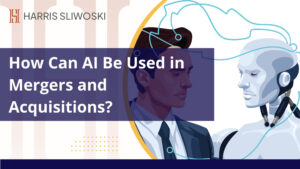We have been writing and making videos discussing some of the legal basics around DAOs, such as the various DAO legal entity types and governance. DAOs seeking to register a legal entity encounter challenges. These challenges are present because many of the current options for legal entity structures were designed for centralized operations — which are incompatible with decentralized operational structures.
DAOs allow for creating organizations on a cooperative and decentralized basis that can then achieve the common goals of their members. Smart contracts underlie a DAO’s operations by executing transactions between counterparties that automatically handle the administrative duties and related decision-making traditionally performed by humans in management roles. Governance is then decentralized when control of the smart contracts is transferred from the DAO’s developers to the DAO’s members.
In the areas of finance, decentralization (DeFi) provides alternatives to traditional and highly regulated financial services. As DeFi smart contract-based protocols increase in popularity (and publicity), they increasingly attract government regulatory attention. Likewise, as DAO treasuries increase in valuation, they too will attract more government attention.
When our clients come to us seeking to wrap some type of legal entity around parts or all of their DAO, the below are some of the key issues we discuss with them. As DAOs increasingly attract government attention, it becomes even more important to strive to comply with the relevant laws and regulations applicable to your DAO and its developers, users, and members.
1. Does the Legal Entity Type Limit Personal Liability?
In the United States and in many other countries, when two or more individuals engage in a venture and agree to equally share profits and losses, they have created a general partnership. A DAO that has not created any legal entity would still meet this definition and be considered a general partnership. In a general partnership, each individual in the partnership has unlimited liabilities for the actions of the partnership. This is why it almost never makes sense to operate as a general partnership. A DAO without a legal entity places its developers, users, and members in a situation with no liability limits. A legal entity type that limits the liability of the DAO’s developers, users, and members will be desirable.
2. Does the Legal Entity Type Keep the DAO Aspect of Decentralization?
Decentralization is a key aspect of DAOs, and most currently available legal entity forms are designed to be centralized. To keep the decentralization aspect, it is sometimes advisable to create a siloed structure containing different entities for different DAO operations. For example, the treasury may be one legal entity form that allows it to function as intended and also be in compliance in its jurisdiction. The protocols may then be either regimeless or registered with a different legal entity form and possibly in a different jurisdiction. By limiting the scope of operations of any individual entity, it is possible to keep the DAO aspect of being decentralized.
3. Does the Legal Entity Type Keep the DAO Aspect of Trustless and Disintermediated Transactions?
As we mentioned above, the ability of smart contracts to automatically execute transactions between counterparties in a disinterested manner is key to the functioning of a DAO. Any legal entity or entities being proposed should preserve this feature.
4. Does the Legal Entity Type Create a Taxpayer?
Developers of DAOs initially keep control over the DAO’s operations until a suitable user base has been established. Once the governance smart contracts are activated, control is transferred to users via distribution of governance tokens. Is receiving governance tokens income under certain legal entity types taxable? Governance tokens often gain in value and are often transferable, which indicates capital gains are being realized.
Any legal entity type should also account for the pass-through effect of the DAO’s treasury tokens, through their execution of smart contracts and related transactions, creating taxable events for its users and holders.
5. Does the Legal Entity Type Follow Current Regulatory Advice?
Regulations concerning DAOs are rapidly evolving. However, some government bureaus have issued guidance on how DAOs can comply, function within and integrate with the traditional financial systems, and pay taxes. Any prudent DAO will want to be informed of the regulatory guidance available relevant to its chosen legal entity type.
In future posts we will discuss specific legal entity types and jurisdictions and how they apply to DAOs.
























